Steve Hackett - Interview
by Andrew Twambley
published: 14 / 2 / 2021
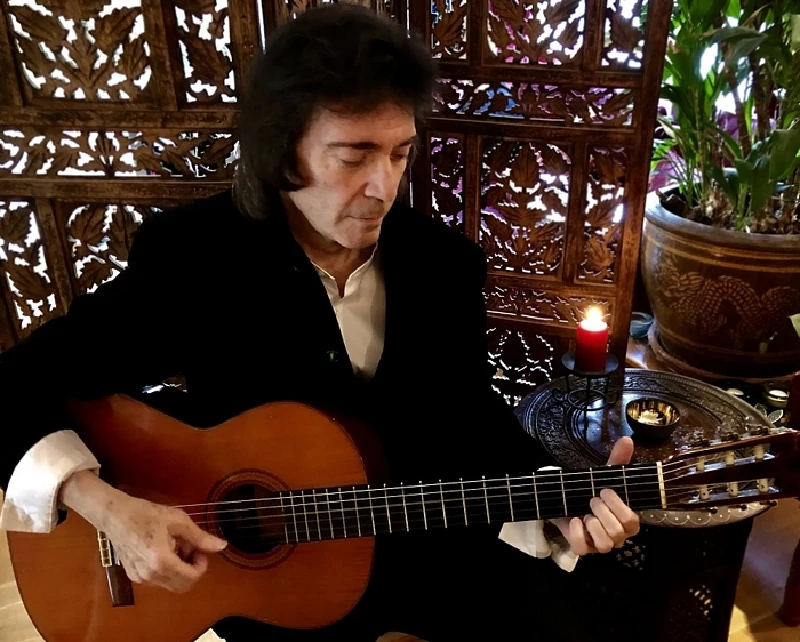
intro
Legendary prog rock artist and former Genesis guitarist Steve Hackett chats to Andrew Twambley about his storied career and new acoustic LP 'Under a Mediterranean Sky'.
When the subject of Steve Hackett is raised in conversation it generally centres around early Genesis and his contribution to their first batch of albums, especially ‘The Lamb Lies Down on Broadway’. Steve departed Genesis in 1977 and has never been one to sit back and bask in former glories. He subsequently released 20 or so solo albums together with several collaborations and Genesis revisits. Pennyblack spoke to Steve about his time with the group and his new orchestral album ‘Under a Mediterranean Sky’ as well as finding time to fit in Jimi Hendrix, Mario Lanza, and his life-long devotion to ‘Star Trek’. PB: Good morning Steve, how has your New Year been so far? SH: Well, I am busy writing new stuff now. I try and keep busy. I had an operation a few weeks ago for a kidney cyst and I couldn’t play for about a month and so I’m now enjoying being back on the horse, which is good. PB: That’s excellent. Before the interview when we were setting up, your PR sent me ‘Under a Mediterranean Sky’, and without trying to sound anything like a fan boy, I just love the album. Tell me about your inspiration for that. SH: Every few years or so, usually about every decade I come out with an acoustic album during all the rock things and I indulge all my acoustic and orchestral fantasies on it. I was trying to think of a focus for something and spoke to my wife Jo about this. We have made plenty of trips to the Mediterranean, usually as a performing musician, but we had lots of trips to places that are not on the touring map. Many of the places are worth visiting such as Jordan, Egypt and so that inspired the album. The idea was to describe different regions with different types of music. Broadly it’s acoustic and orchestral but the track that’s inspired by Greece is not the same as the track that’s inspired by Spain etc. So, it gave a focus and gave a concept of the broad story to be told, if only our impressions. PB: You are a guy who is known for being musically diverse. This new album is certainly a departure or a development from previous LPs and some say it’s almost classical. What made you choose that pathway? One which certainly works by the way. SH: It’s a funny thing isn’t it? I don’t know what makes me do it, now here’s a strange story. PB: We like strange stories. SH: My father is convinced that we are descended from a very famous sculptor and he thinks it is part of the family line. My brother and I joke about this because my brother says, “I always knew we were nobs really.” PB: Mods or nobs? SH: Nobs, yeah toffs, toffs. The weird thing is that basically we are from working class stock but I think we both aspired and headed towards classical music. A lot of people consider that they are uneasy bedfellows – rock and roll and orchestras. It’s weird isn’t it? PB: I think you have disproved that over the years. SH: They say the two genres should never mate but I quite like the mongrel effect of that. PB: Well, they have certainly mated on this album. The standout track for me, which is not generally on release yet is ‘The Dervish and the Djinn’. Where did that come from? SH: Ah, that one – again my wife Jo, who wrote many of the melodies on this album, said it would be good to do something Turkish. Turkey and Armenia both play the Duduk which as you know is a wind instrument. I first heard it when Peter Gabriel used it, funnily enough, so decided to incorporate it into the track. We’d seen Dervish Dancers twice when were in Egypt. It was extraordinary watching what they do, it doesn’t look humanly possible. We’d all pass out in the first thirty seconds, I think. PB: Especially after a few glasses of wine. SH: (Laughs) Absolutely! It’s amazing stuff. It was a bit of a rave up that one, I used an electric guitar but I didn’t plug it in, so it was acoustic, with lovely percussive qualities. I am just playing guitar on that one and other people take over. We’ve got a guy from Armenia on it Artem Petrosyan, then a guy from Azerbaijan Malek Mansurov on guitar, and then of course the other lead instrument is the soprano sax on the end which is Rob Townsend. PB: Right. It is track that would fit nicely into the ‘Gladiator’ soundtrack if you think back to that wonderful film 20 years ago. SH: Yeah, funnily enough that instrument is used at the beginning isn’t it? And it influenced so many filmmakers because it is a very provocative instrument. I always think, whenever I hear it playing, it sounds like a film. It sounds like wasteland and expansive. PB: And sand. SH: …And sand, certainly! PB: When we finally get back to normal and start playing live again will you be incorporating that album into the set? SH: You know what, whenever I do these acoustic albums, I always think the nice thing is that I’ve got no pressure to deliver this live. I don’t do it in order to make hit albums. I do it because I love it. It’s a bit like, why would anyone bother to do oil paintings when you can do it much quicker with a spray can. You know the spray can of rock and roll! It’s all been superseded, but in a world where there is lockdown and time to do this kind of thing I did this album in about two months, which is pretty good going considering, it’s quite complex. I think it is more driven by technique than rock. I’d like to think that melody was the driving force and of course imagining places around the Mediterranean. PB: Prior to the interview I was looking back over your catalogue going back to the 60’s through to now. It a vast musical expanse. With such back catalogue in your private collection, do you find it any way off putting that you have to keep the old museum open and play Genesis numbers all the time – stuff from forty-five years ago? PB: Well, I like that analogy because if I embrace the Genesis work again then I’m playing curator in a museum, partly of my own making, wearing my curator’s cap, let’s put it this way. SH: I think that because the early work was so stellar and evocative from the days when the band wasn’t that well known, I still feel that there is some gems that are worth uncovering and dusting down and saying “Yeah these are the crown jewels”. Those tracks are from before Genesis became the very polished machine that it did. I think the level of imagination that was there, from young guys that were all desperate to do something, was both subtle and at the same time trying to set the world alight without the blowback. We weren’t going out there smashing instruments and setting them on fire. PB: Unlike some... SH: Genesis was a very subtle band. Lots of it was acoustic and the lyrics could be very wordy but there is a romanticism to it. So, what if a lot of the music didn’t really have proper choruses to them? There was a lot of classical influence and I think the classical influence is what drew me to the band and I am still using that now. A lot of what I do has this influence – mid nineteenth century. PB: I am a couple of years younger than you but going back in time, one of the precipice moments of my listening career was ‘The Lamb Lies Down on Broadway’. Where does that fit into your past? SH: I sometimes try and define that album and I think right from the very first track you have this classical keyboard work and creative punk lyrics and songs from Peter Gabriel. It is that clash of cultures that define the album. That’s my take on it anyway – a band that was often at loggerheads with each other came out with such an immense album! PB: It makes me shiver thinking about it. It was such a great album. SH: It worked for you. PB: It took me away Slade and The Sweet and introduced me to proper music. SH: Right, OK so it weaned you off that PB: It did. SH: And I think many people think it’s the band’s finest hour and other people accuse me and say “What the hell were you thinking and why did you do that!?” You either love it or loathe it. PB: I still think there is a lot to discover in the album. Even listening all these years later. SH: It’s very broad and some of the moments that are over in a flash are really, really great. We could have gone another way, we could have developed it another way. There are certainly things that are standout on it. It was an attempt to be a modern album but it can’t help wandering into art nouveau moments or even some pre-Raphaelite aspects. ‘The Chamber of 32 Doors’, I think that would have been an equally interesting title for the entire album if you think of that concept of thirty-two different kinds of music. I think that ‘The Lamb’ comes close to that. PB: After Genesis you were part of a supergroup in the mid 80’s GTR with Steve Howe. SH: Yes. PB: I also heard a whisper at one point you were considering joining Jack Bruce and Keith Emmerson in another supergroup. Is there any truth in that or is it just a complete rumour? SH: They asked me to join them – this was an early 80’s thing. In fact just before we had the one and only Genesis reunion live in 1982, I played with those guys – and (drummer) Simon Philips – for three days. We were intent on doing that and then it looked as if all of a sudden, Jack and Keith were no longer getting on and they agreed to part ways. PB: I don’t think Jack got on with anybody for more than two months. SH: There is that and Keith, bless him, wanted to control it. Keith was an incredibly accomplished performer and Jack’s also incredibly accomplished. Both their work is extraordinary. They fell out over something – a song that Keith wanted to do and had some idea, I think lyrics for and Jack said “It won’t work as a vocal thing” and then Keith said “Can’t you just try it?” I gather Jack took up a firm position against that. It wasn’t an argument as such. Keith asked me if I would be the singer for the band and take up Jack’s position on it and I said “Well, I think of myself more of an instrumentalist than a singer”. I could have taken him up on it and done that and I might well have said “Yes by all means” but at that time we all sort of retired to our corners. I think is the best way to describe it but it would have been an interesting moment. There are tapes that exist of all of us together. PB: Are there? SH: As I say three days, so no doubt they will surface at some point and people will hear of the group that could have been. PB: I’ll look forward to that. SH: Everything was in a stage of development so it won’t be the final thing. In other words it will be unfinished idea, but yeah those do exist. PB: 2021, believe it or not, marks the anniversary of ‘The Charisma Shilling Tour’. I recall it was 30p a ticket at the Apollo in Manchester. Do you remember anything about those days? I know it was 50 years ago… SH: Yes, what I do remember is that I had just joined the band doing my first professional gig and suddenly we were playing sell out gigs throughout the country and up to Scotland. It was a kind of baptism of fire for me. To say I was nervous every night was an understatement. It was my first professional tour and so even though the places were sold out, which should have been a cause for celebration, I felt the pressure of performance hugely. We hadn’t written anything together at this point so I was filling someone else’s shoes and feeling very much like the new boy in the band. So, yes I remember everything about it. I remember exactly how I was each night, just getting myself physically on stage, it was really quite something. It was tough for me but I knew it had to be gone through. Over the years you do learn that even if what you’re doing on stage turns into an absolute disaster, which thankfully doesn’t happen most of the time, because you rehearse to avoid that, nobody dies even with the worse gig. Even when things blow up and the stage catches fire and your amp blows up, the strings break, the drummer has fallen over, the snare drum’s gone and all the rest, nobody dies and it’s not war. I go on stage thinking I wonder what will happen tonight, you never know. You sense that with any band that goes out on stage, at any point, you know what they are all thinking, “I hope my guitar works”, “I hope the keyboards stay in tune” etcetera. All the things that can wrong, will go wrong at some point. PB: Bearing in mind that was fifty years ago and things have progressed technically since then, if you could take any instrument or any bit of gear today back to that tour, what would it be? SH: It would probably be the Sans Amp which is basically a distortion unit that makes the sound distort at a very low level. The other would be the Fernandes Guitar for its Sustainer System, which uses electromagnetics to vibrate a string for an extended period, so long as the user continues to fret a note. You can get feedback from the guitar itself without deafening anybody and it’s very controllable. I wish I had equipment that was that controllable at that time but then nobody did. If you wanted to sustain you had to turn it up very loud. PB: Again, looking back over your catalogue you have a hardcore of musicians that you often work with and then every album or so you have various guests. How do you choose the guest artists? SH: I have made friends with people all around the world and so I’ve formed something of an international band. Sweden have been important in recent times with all the guys that have comprised this recent line up and so we have a sort of Anglo-Swedish band live. I cast a wider net over the rest of the world and work with friends from everywhere. On the new album I have people from Armenia and Azerbaijan. For the last two rock albums, each of them have had about twenty people on them from all over. From Iceland, from Hungary, you name it really. From the States, the UK. It’s kind of a United Nations. PB: Exactly. You mentioned distortion a few moments ago, it’s not a question I have written down but it came to me when you were talking. Where do you rate Hendrix amongst guitarists? Talking about distortion feedback and equipment? SH: Obviously he was an incredible performer, no doubt about that. I think he is the only guy I have ever seen with a guitar who didn’t need a light show, the show was all him. An incredible performer with a kind of rock ballet going on, both dangerous but under control, he seemed more than human. Something extraordinary, I rate him very highly. He was very underrated as a writer. Nobody talks about his writing, everybody talks about his guitar playing but there are some incredible lyrics, very fluent use of writing within the blues. If Gershwin is rated as a classical composer working with the blues, then Hendrix has to be considered in the same light as far as I am concerned. How wonderful to be able to not just be a bluesman but to be fluent enough to take that and write such wonderful tunes around it and so rhythmically complex. Somebody I was having conversation with – another incredible musician John Wetton, said he had recorded some Hendrix stuff with various people and he said there is no such thing as a straight Hendrix tune, they’re all difficult. If you look at the original recordings there are always things that trip you up. Really, he was a great performer. Hendrix’s entire performance from Woodstock, and they only ever show ‘The Star-Spangled Banner’ most of the time, his whole performance and that of the band was really quite something. I love Mitch Mitchell’s drumming with him as well. I have to say that I think that that was a big part of the appeal. I think that a lot of modern drummers could learn something from that style. For instance, ‘Hey Joe’ the drumming on that! Most drummers wouldn’t go anywhere near that style. That busy style, filling in all the spaces. Perhaps Keith Moon might have done something similar, but it seems almost as if it is coming from the world of jazz rather than the world of rock. PB: Excellent. SH: I think most drummers would go ‘buff biff’ along with that and then the song would be leaden and it wouldn’t really build an intensity but you’ve got all that kind of that skippy style from Mitch which I think suited Hendrix down to the ground. PB: A couple of off the wall questions now to see us off. Mario Lanza (1950s opera tenor and matinee idol) – where does he fit into your background? SH: When I was a kid I used to love hearing Mario Lanza on the radio. It was the drinking song from ‘The Student Prince’ (1954) and I just used to thrill at the sound of it. I used to sort of dance around and then fall over when he hit those long-held notes that shook the walls. I think if I had been a woman listening to that you would have called it “swooning” at the sound of that. I know that Sinatra himself said that when he heard Mario Lanza sing he swooned too. So yeah, he made us all fall over with just the power of it, the joy of it. That’s part of it. I’m no expert but I gather that he never really sang a whole opera, he just sang the arias. PB: He was like a greatest hits guy wasn’t he? SH: Yeah, he was a huge influence on Pavarotti. Pavarotti said that Mario Lanza was his idol and had the classical credentials of having sung these things all the way through on much more of a perhaps schooled approach to it. He seems to have neem a natural though, a one off. An extraordinary sound, wonderful. PB: And finally Steve, I have searched guitar magazines for verification of this fact but I can’t find it – are you a big ‘Star Trek’ fan? SH: (Laughs) Star Trek! Yeah, the original series. PB: (Laughs) Obviously, the original series. Obviously. SH: The original series which I think more psychologically sussed. The scripts were stronger and I think that it was a great series and brought up a lot of psychological issues. I think it was way ahead of its time. PB: It was. SH: In Genesis we were all fans of ‘Star Trek’. We used to watch it and we thrilled to it and laughed along with all the cast. PB: Thank you.
Band Links:-
http://www.hackettsongs.com/https://www.facebook.com/stevehackettofficial/
https://twitter.com/HackettOfficia
Play in YouTube:-
Have a Listen:-
Picture Gallery:-
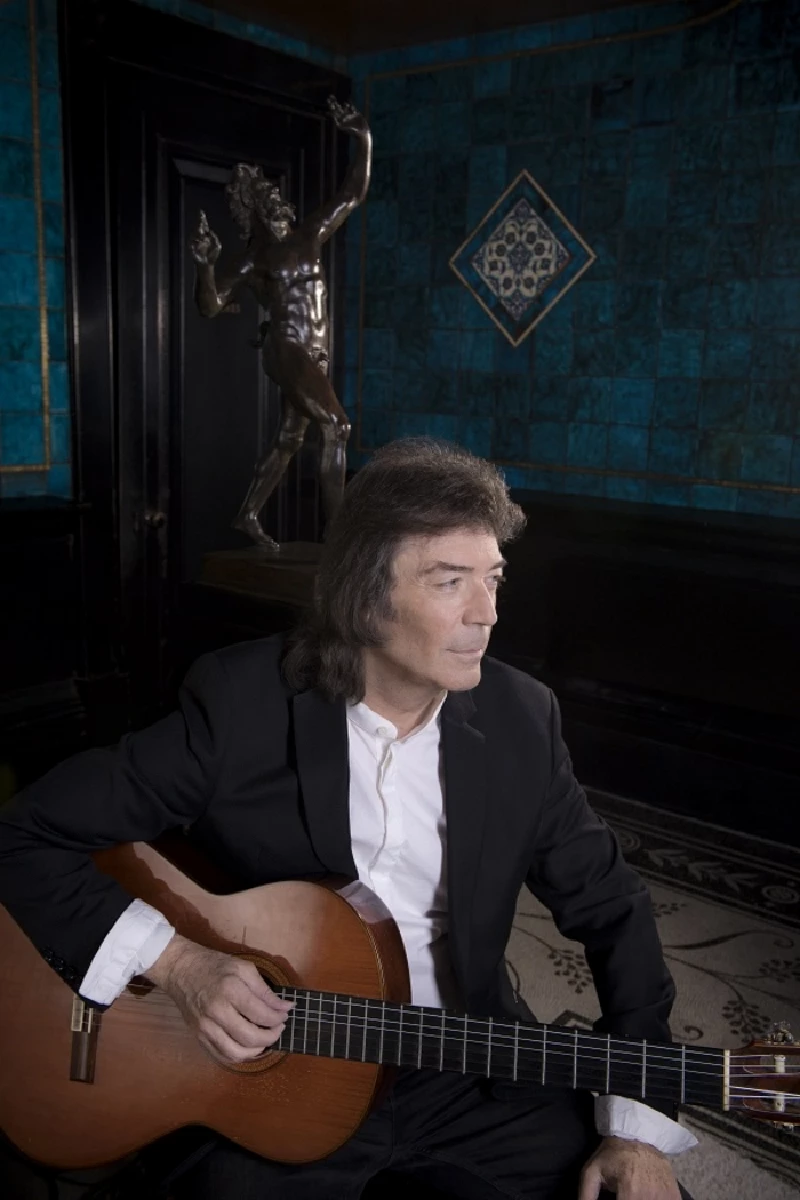
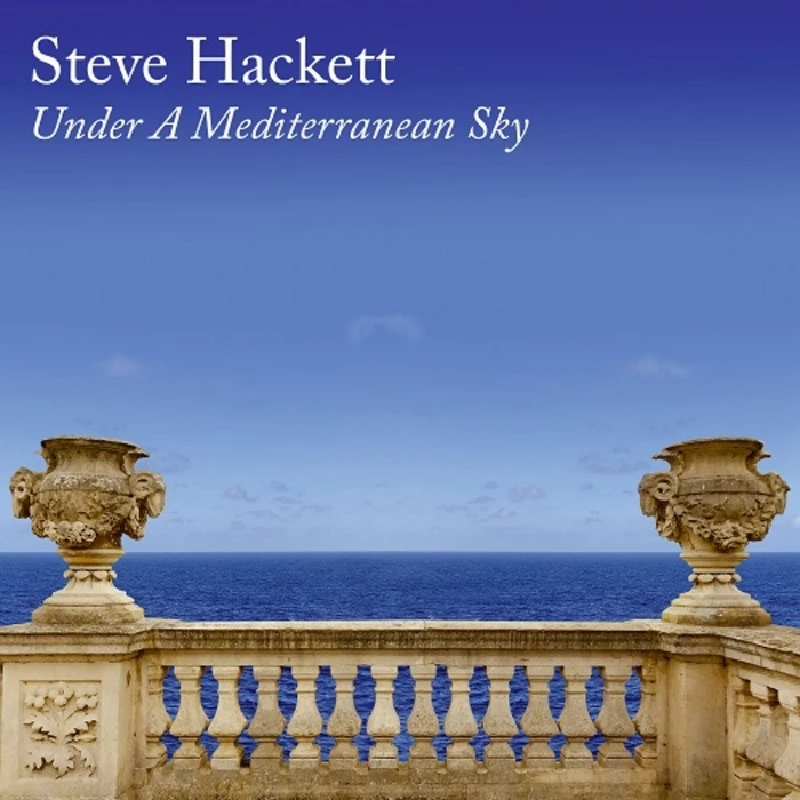
interviews |
|
Interview (2024) |
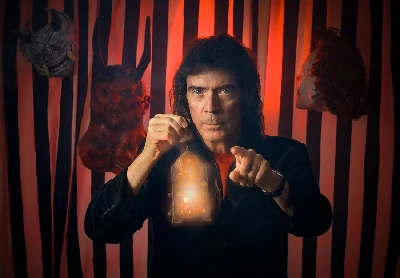
|
| Prog guitar legend Steve Hackett talks to Eoghan Lyng about his new album ‘The Circus and the Nightwhale’ and his years with Genesis, |
| Interview (2013) |
live reviews |
|
Apollo, Manchester, 24/9/2021 |
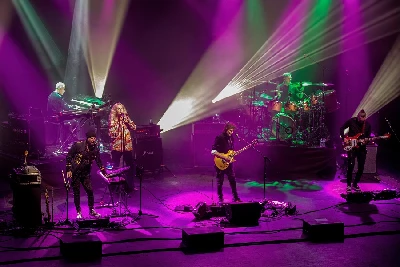
|
| Neil Swift at the Manchester Apollo watches Steve Hackett plays Genesis' entire double live album 'Seconds Out' as well as highlights from his own back and current catalogue. |
photography |
|
Photoscapes (2022) |
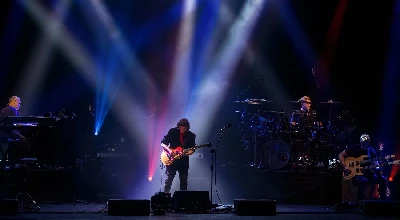
|
| Andrew Twambley takes photographs of ex-Genesis guitarist Steve Hackett with his band at the Manchester Apollo. |
reviews |
|
At the Edge of Light (2019) |
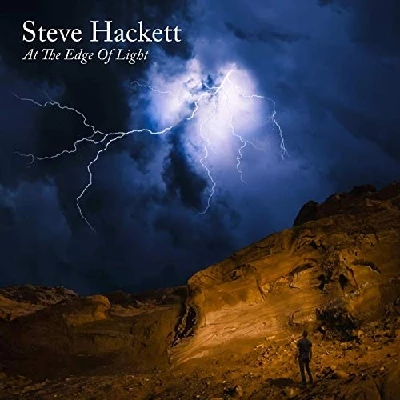
|
| Lavish and ambitious prog rock on latest album from former Genesis guitarist and solo artist Steve Hackett |
most viewed articles
current edition
Carl Ewens - David Bowie 1964 to 1982 On Track: Every Album, Every SongArmory Show - Interview with Richard Jobson
John McKay - Interview
Colin Blunstone - Thalia Hall, Chicago, 16/7/2025
Bathers - Photoscapes 1
Billie Eilish - O2 Arena, London, 10/7/2025
Loft - Interview
Visor Fest - Valencia, Spain, 26/9/2025...27/9/2025
Sir Tim Rice - Interview
Robert Forster - Interview
previous editions
Manic Street Preachers - (Gig of a Lifetime) Millennium Stadium, Cardiff, December 1999Heavenly - P.U.N.K. Girl EP
Beautiful South - Ten Songs That Made Me Love...
Peter Perrett - In Dreams Begin Responsibilities Interview Part One
Boomtown Rats - Ten Songs That Made Me Love....
Oasis - Oasis, Earl's Court, London, 1995
Coldplay - Wembley Arena. London, 16/8/2022
Prolapse - Interview
Trudie Myerscough-Harris - Interview
Pixies - Ten Songs That Made Me Love...
most viewed reviews
current edition
Davey Woodward - Mumbo in the JumboSick Man of Europe - The Sick Man of Europe
Lucy Spraggan - Other Sides of the Moon
Amy Macdonald - Is This What You've Been Waiting For?
Suzanne Vega - Flying With Angels
Blueboy - 2
Bush - I Beat Loneliness
Phew, Erika Kobayashi,, Dieter Moebius - Radium Girls
Alice Cooper - The Revenge of Alice Cooper
Cynthia Erivo - I Forgive You
related articles |
|
Fairport Convention: Live Review (2014 |
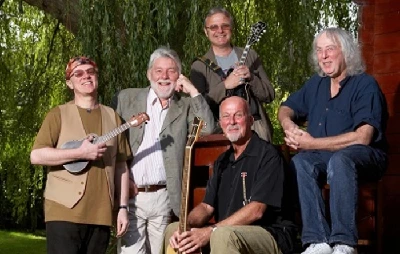
|
| Nick Dent-Robinson enjoys this year's Fairport's Cropredy Convention, which as well as Fairport Convention also saw sets from Chas 'n' Dave, Marillion, Steve Hackett's Genesis Extended and remarkable Welsh singer-songwriter Deborah Rose |
Pennyblackmusic Regular Contributors
Adrian Janes
Amanda J. Window
Andrew Twambley
Anthony Dhanendran
Benjamin Howarth
Cila Warncke
Daniel Cressey
Darren Aston
Dastardly
Dave Goodwin
Denzil Watson
Dominic B. Simpson
Eoghan Lyng
Fiona Hutchings
Harry Sherriff
Helen Tipping
Jamie Rowland
John Clarkson
Julie Cruickshank
Kimberly Bright
Lisa Torem
Maarten Schiethart